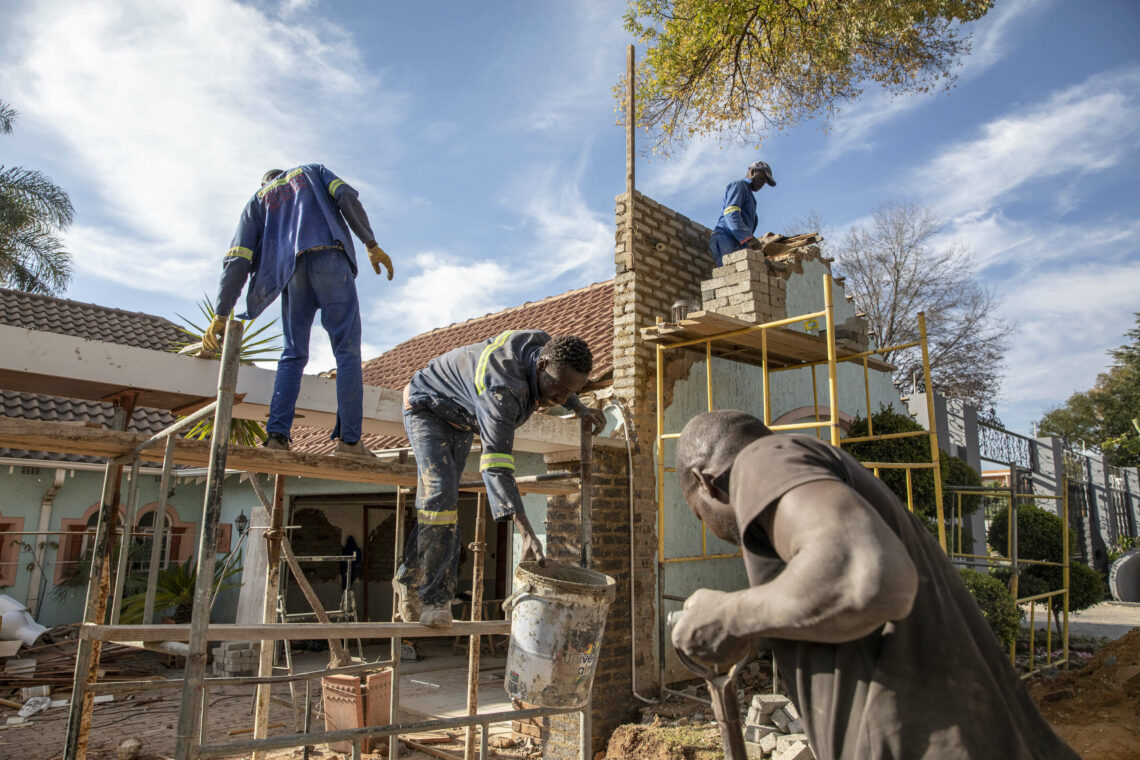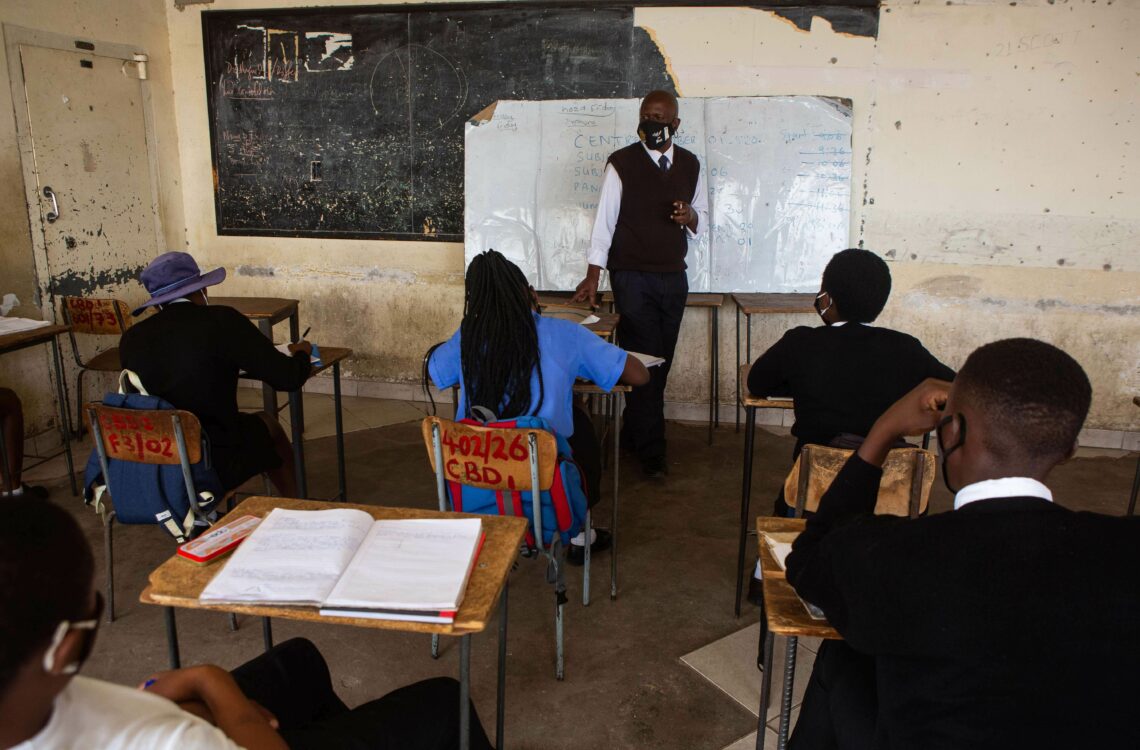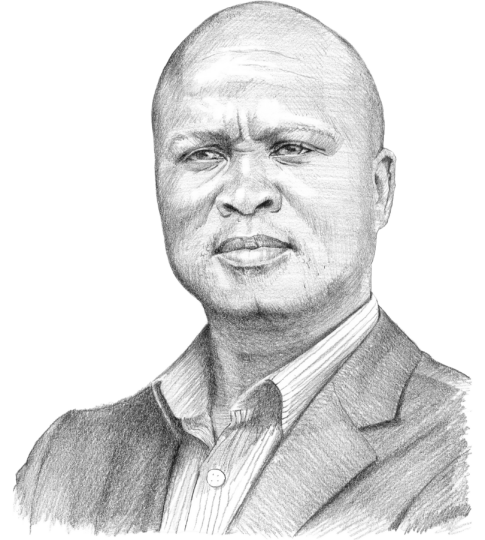Post-pandemic politics in Southern Africa
Southern Africa is still grappling with the Covid-19 pandemic, and governments are adopting emergency laws that could have a long-lasting impact on democratic processes in the region. There is no guarantee that powers will be redistributed to lower levels of government.

In a nutshell
- SADC states enacted emergency laws during the pandemic
- Executive branches now have new and far-reaching powers
- The situation could result in democratic backsliding
The Covid-19 outbreak has affected the functioning of democracies across the world. The global response to the pandemic led many to question whether the measures taken were proportionate to the crisis at hand or whether governments overreached, compromising democratic processes. The enactment of emergency laws has significantly altered the decision-making process of many states.
The coronavirus remains a major concern in the 16 countries of the Southern African Developing Community (SADC), which is currently battling rising infections amid slow and uncertain vaccination programs. The region will most likely not only have to battle the disease for a long time, it will also need to reckon with the pandemic’s impact on good governance and democracy.
Emergency decision-making procedures have allowed governments to bypass ordinary processes.
South Africa, Botswana, and Zimbabwe have adopted emergency laws of varying severity to deal with the pandemic. However, this disaster management legislation was implemented in a way that negatively affected accountability and transparency. Even before the pandemic, there were concerns about the quality of democracy in the region. Covid-19 has exacerbated the situation.
Disaster management
In response to the health crisis, South Africa invoked the Disaster Management Act, which allows the government to take “necessary” steps for the purpose of “assisting and protecting the public.” Similarly, Botswana invoked the Emergency Powers Act, under which the president can promulgate the necessary regulations to protect the nation. Zimbabwe implemented a national lockdown and legislation allowing the state to adopt new regulations to fight the virus.
These measures gave the executive more liberty in choosing what steps are necessary to protect the population against the spread of Covid-19 and its economic impact. They also enabled emergency decision-making procedures, allowing governments to bypass ordinary processes. For example, procurement systems were put in place to purchase whatever was deemed necessary to fight the pandemic. In practice, this meant large sums of public funds were earmarked for spending with little to no transparency or accountability. Even South Africa, which has a relatively functional oversight system, saw some serious lapses when it came to emergency spending. Irregular expenditures became so common during the pandemic that the health minister eventually had to step aside due to public outrage.

The SADC enacted relatively harsh regulations compared to other regions, in some cases drawing criticism from the media and civil society organizations. In South Africa, concerns were raised about the constitutionality of some of the regulations, such as prohibiting sales of certain goods like cigarettes and alcohol.
In Botswana, South Africa, and Zimbabwe, governments were able to prolong and modify regulations as they deemed fit. The pandemic gave leaders considerable power at a time when governments were already failing to keep executive powers in check. Few nations were able to avoid scandals over the procurement of personal protection equipment. Governments did too little to ensure transparency, enabling corruption. In some cases, they even adopted laws that stifled the flow of information, as in Zimbabwe and to a certain extent Botswana.
When the risk of corruption was at its highest, there were no corresponding efforts to stymie the threat.
Amid this atmosphere of wrongdoing, new regulations made it difficult for journalists to report on the government’s handling of the pandemic. Botswana adopted a law that stipulated a five-year prison term or a $10,000 fine for publishing information that intends to deceive the public about the government’s intervention measures. While such laws were meant to prevent dangerous misinformation about the virus, in Botswana and Zimbabwe they inadvertently created an unfavorable environment for reporting just when a free and open press was most needed.
When the risk of corruption was at its highest, there were no corresponding efforts to stymie the threat. Governments adopted a “command council” approach without adequate transparency measures. The Covid-19 pandemic is arguably the most severe crisis of recent decades. With no template to follow, Southern African countries resorted to far-reaching measures. But now, the additional leverage gained by the executive during states of emergency is likely to continue affecting national politics. Even when emergency regulations are removed, normality will not immediately return.
Scenarios
One of the threats resulting from the Covid-19 pandemic is that central governments will monopolize power, leaving little room for public participation or decision-making in lower echelons of governance. In Botswana, the president is said to be ruling by decree, and he exercises his powers without much challenge from the opposition. In South Africa, there is a shift toward “command council” governance that is likely to prevail even after the health crisis is over. Overall, the damage caused by the pandemic will be used by some of the authorities to justify concerning trends. Central planning will be presented as the only way to restore capacity in government, and more centralization in delivering public goods could cause corruption to rise significantly.
It is likely that post-Covid reconstruction projects will overwhelm public services, which will struggle to manage large sums of money – again, increasing the risk of graft. The health sector, where transparency and accountability were under criticism before the pandemic, will see conflicts over public expenditure.
The Covid-19 pandemic will continue to exert pressure on good governance in the region. Some features of emergency rule will remain in place even as the health crisis subsides. The power balance has now shifted toward the executive, without ensuring that parliaments are up to the task of holding leaders accountable. Pushing back against this state of affairs will ultimately be left to nongovernmental organizations, which may lack the resources to do so.






